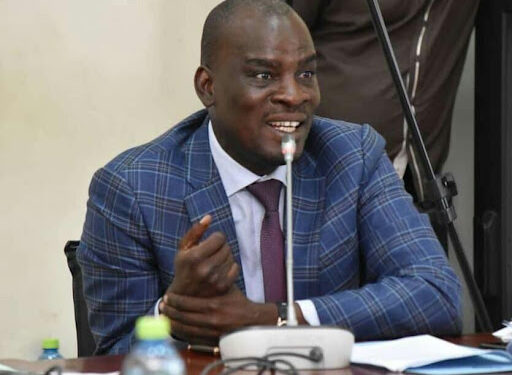Budget Day: Expect huge expenditure cuts, tax revisions – Minority to Ghanaians
“When you come for a review and amended FRA, itself would be a problem, so Ghanaians should expect a review of taxation, we must also as a country begin looking for answers as to deal with the continuous depreciation of the cedi, we need to work to expand export, work to preserve foreign exchange in this country.
- Advertisement -
Former Minority Leader, Haruna Iddrisu has disclosed that the rank and file should expect huge expenditure cuts and a review of some tax handles in the 2024 Budget Statement.
The Budget Statement and Economic Policy of the Government for the 2024 Financial Year is scheduled for presentation on November 15, 2023, by the finance minister, Ken Ofori-Atta.
- Advertisement -
Mr. Ofori-Atta must present a national budget for 2024 during a debt restructuring, under the fiscal restrictions of an International Monetary Fund program while being locked out of global capital markets.
- Advertisement -
And then there’s the election coming up that he will want to help his New Patriotic Party win — Vice President Mahamudu Bawumia is expected to be up against former leader John Mahama next year.
The government needs to restore investor confidence and credibility following the slide into a debt trap, by showing a commitment to lift revenue and curb spending.
Speaking with members of the Parliamentary Press Corps on Tuesday, Mr. Iddrisu said “The Minister of Finance has no option than to embark on a difficult mission of expenditure cuts, therefore don’t see growth accelerating or growth of the economy being fast-tracked, there would be huge expenditure cuts, there would be attempts and efforts by Fin. Min and government to make debts sustainable an impossibility tool.
The biggest news would have been that he has reached an agreement with external creditors so that he will be able to save some US$10.5bn out of the US$29bn external debt which would give him some fiscal space.
But he is more likely to say I am near conclusion with China and Paris Club with closure on this matter, which has become a requirement of the IMF for the release of the US$600m bailout to add up to the initial US$600m which was released earlier.”
Mr. Iddrisu who is also the Member of Parliament for Tamale South asserted that the country is in dire need of the second tranche of the bailout cash, “I think that we need the US$600m badly before the end of November, other than that the epilepsy of the cedi would be at crushing level.
- Advertisement -
So tomorrow, his biggest news would have been that I have achieved understanding and agreement with external creditors, regrettably, he would not be able to say that because he still has some difficulties with external creditors, particularly China and Paris Club. He has to learn from the Zambian and Sri Lankan experiences”
Further, he indicated that he expected the finance minister to resurrect the suspended Fiscal Responsibility Act – which would ensure fiscal discipline, as well as fiscal consolidation.
“When you come for a review and amended FRA, itself would be a problem, so Ghanaians should expect a review of taxation, we must also as a country begin looking for answers as to deal with the continuous depreciation of the cedi, we need to work to expand export, work to preserve foreign exchange in this country.
There would be a lack of fiscal space, a review of some of the taxes, and government from learning to hold their word – they have danced back from production to taxation, so we need to increase investment in agriculture. We need to find a way to deal with the BoG Act, and Ghanaian businesses – the cost of doing business is high, and living also high. Our economic nemesis is arresting the depreciation of the cedi.”
Ghana has embarked on a debt restructuring initiative, part of a $3 billion bailout program established with the IMF in May. Compliance with the IMF’s requirements involves timely negotiations with investors, as well as continued efforts by the central bank to control inflation.
The IMF program’s terms include Ghana’s commitment to curbing expenditure and enhancing revenue collection. The country, which ranks as the world’s second-largest cocoa bean producer, aims to reduce its debt-to-GDP ratio to 55% by 2028, down from 71.3% recorded at the close of 2022.
In line with the IMF-supported program, Ghana is projected to improve its primary balance and achieve a surplus equivalent to 1.5% of GDP for the years 2025 through 2028. The authorities’ objective is to elevate the government revenue-to-GDP ratio to over 18.5% by the conclusion of the three-year program, up from 15.7% in 2022, considering Ghana’s relatively low tax-to-GDP ratio compared to its potential.
Source:norvanreports
- Advertisement -


